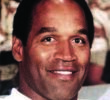Extreme hot weather is a threat to all ages
By Veita Bland, M.D. / June 16, 2022
Extreme heat throughout the nation is something that may be the new normal. Take precautions to help protect family and friends.
In the United States heat is no friend. Hundreds of people die each and every year from heat exposure. We are forecast to have extremely hot weather for the next few days. With the advent of the climate changes through our inability to protect the environment, this is something we may need to get used to. So, we must take precautions to protect ourselves, our families and friends.
There are groups of people that are more susceptible to the effects of the heat. Young children and infants are a particularly vulnerable group. Their bodies are less able to adapt to the heat than are adults. Each year, from April into December in the southern states, we tragically hear of deaths of infants and children left in cars. Those under four are at particularly greater risk. Remember to look before you lock. Also, remember your pets.
The elderly, people with conditions that limits their mobility and those taking certain medications are another group that does not do well with heat. This is especially so if there is no air conditioning.
People with chronic medical conditions such as heart disease, diabetes, lung disease and kidney disease are again particularly vulnerable to the effects of the heat.
Pregnant women should protect themselves and their unborn babies from the effects of heat. Extreme heat has been associated with low birth weights, preterm births, infant mortality and congenital cataracts.
The CDC (Centers for Disease Control) reminds us that heat related deaths are preventable, and everyone should practice heat safety each and every day. In the workplace, especially if working outside, it is imperative to stay hydrated. Take breaks in the shade as often as you can. If possible, plan your day so you are not out during the hottest part of the day. Protect your skin from the rays of the sun.
Check in on the elderly, sick and those with limited mobility. Be especially alert to those with no air conditioning. Try to make sure they have a fan to move the air around them. Make sure they have plenty of water to hydrate themselves.
A big part of heat safety is to never leave kids unattended or alone in a car. If you are the one to drop a child off at daycare, remember to LOOK before you LOCK to make sure no one or an animal is in your vehicle.
Definitely plan your outdoor activities in the early morning or later in the day when the sun has set. Strenuous activities should be avoided, find shade and stay hydrated.
During the heat, your body may be challenged if it heats up too fast to properly cool itself or if it losses fluids through sweating or dehydration. Heat cramps may be the first sign that a problem is at hand. Here, painful muscle cramps in the legs and stomach with heavy sweating are the symptoms. Apply firm pressure, massage those muscles, and drink sips of water unless there is nausea. Seek medical care if this last more than an hour.
Heat exhaustion is a more serious event. Some of the symptoms of heat exhaustion are: heavy sweating, weakness, tiredness, cool, pale, clammy skin with a rapid weak pulse, headache, dizziness or fainting. Move this person to a cooler environment immediately, hopefully with air conditioning. Loosen their clothes. Apply cool wet clothes, have them sit in a cool bath and offer them sips of fluid. If no better in an hour or if they become worse, seek medical care immediately.
Heat stroke is a true emergency. Here the symptoms are a throbbing headache, confusion, nausea, dizziness a body temperature of 103 or above. The skin can be hot, dry, damp, the pulse is rapid and strong. There is fainting and loss of consciousness. This is a true emergency and delay can result in death or permanent injury. Call 911 immediately. Until paramedics arrive, move the person to a cool environment that is air conditioned if possible. Use cool wet clothes, a cool bath. Do NOT give fluids.
In our present time of high gas prices, if you don’t have to travel away from home, spend the gas money and use the air conditioning. Make sure you check in on relatives and especially the elderly. Inquire how you can help. They may need help with their electric bill or money to buy water.
The key here is to avoid exposure to the heat and remain hydrated. The kinds of fluids one consumes matters. Drink water or drinks with electrolytes that lack the sugar and of course no alcohol.
Heat related deaths are preventable. Protect yourself, your family and friends by being aware and diligent of these facts.
Dr. Veita Bland is a board-certified Greensboro physician and hypertension specialist. Dr. Bland’s radio show, “It’s a Matter of Your Health,” can be heard live on Wednesdays, 5:30 p.m. on N.C. A&T State University’s WNAA, 90.1 FM. Listeners may call in and ask questions. The show is replayed on Sirius 142 at 5 p.m. on Wed. Email Dr. Bland at ideas@blandclinicpa.com.







